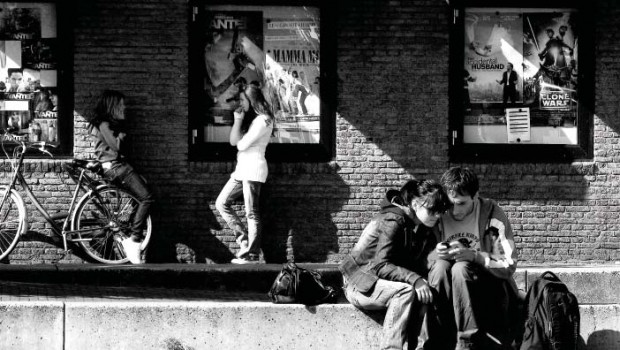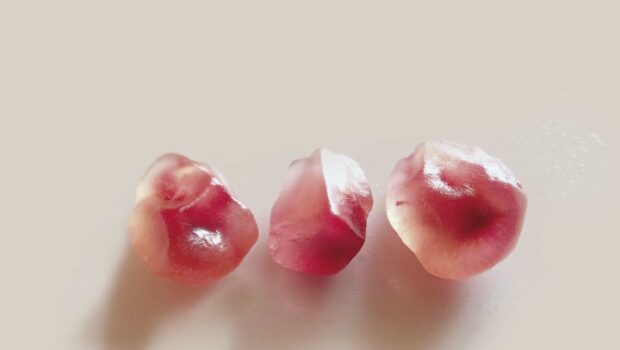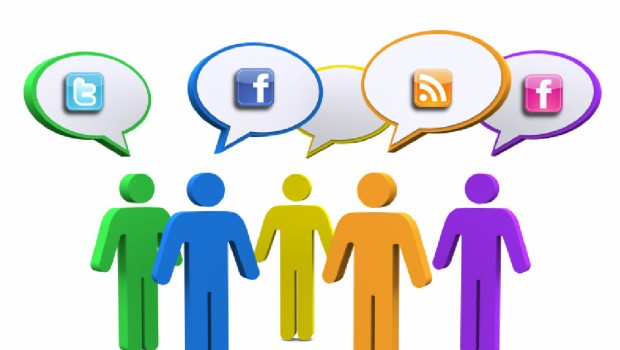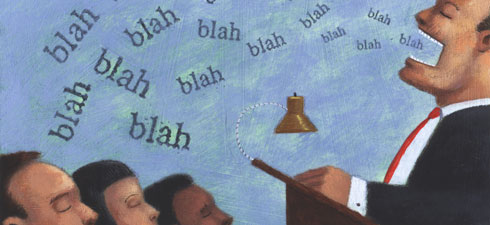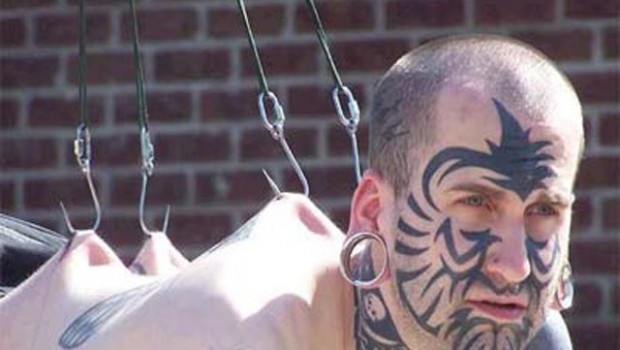Notebook: Cell Phones
Cuaderno de notas: celulares
Sven Birkerts
Sometimes there is nothing to do but remark the obvious, and then wonder why others aren’t remarking it as well. Is it part of the nature of obviousness to be invisible— or irrelevant? I could be talking about many things, but right now I’m stuck on cell-phones, which have gone from being rich people’s perks to mass indispensibilty in what feels like a snap of the fingers. But what doesn’t feel like that? I’ve been noting the acceleration of the rate of technological change for years now, at first with alarm, then philosophical detachment, and finally with the kind of weary acceptance I reserve for the pricks that are clearly not to be kicked against. Except somehow this ‘prick’ got me going again yesterday. I was in Harvard Square, making my way along Massachusetts Avenue on my way back to my car; I was feeling relaxed for the first time in a long time, savoring the spring weather and the fact that the bulk of my semester’s work was finally behind me. I had paused on the corner in front of the Au Bon Pain, waiting for the crossing green, when the whimsical gods looked at each other and nodded.
Our fate dispensers have become savvy about presentation; they knew how to stage the scene for maximal effect. I lifted my head to check the traffic, and voila!—in one glance I took in five or six people converging toward me from different directions, some on the sidewalk, some crossing the street—and every single person was talking on a cell phone. It was like a clever TV commercial, but I knew right away that we were into something serious. But then, even before that image had fully registered, as a kind of ironic underscoring, I watched the stream of passing cars and every last driver had a phone pressed to the ear. This was too much- -even by hyped-up contemporary standards. I wanted to grab the arm of some fellow witness, to shout out “Come here, look! Get a load of this!” But there was no one I could address. Everybody, you see, was on a phone. So I gawked and gaped alone; I shook my head; and then…and then I continued walking to the car, taking the quiet side street, trying to get my mind back to the soft barrage of pastels in the trees and bushes that would all be gone in a week or two.
But I could no longer focus. For I was suddenly full of new surmise. I had for years been looking at people and their cell phones saying to myself this is something, but now I felt confi rmed in my most anxious forebodings. Not depressed, not at that moment—but excited. Though I was pretty sure that the news was not good, the prospect of turning that single image over and over in my mind exhilarated me.
Driving home, I was thinking in all directions. There was the media side of it all, of course, the Marshall McLuhan global-village/paradigm-shift perspective—clearly I had just observed the very moment of the turn—but I set that aside that for later. Just then I was struck more by the idea of talk—the sheer magnitude of it. I featured hundreds of millions of these instruments going all day long in all corners of the world—from the Faroe Islands to Islamabad—all of them spewing chatter. Chatter in every language and dialect, at every level of intonation. Blasphemies and love-talk; stock-tips and cooking instructions. Has there ever been so much noise, so much idle verbalizing? The cell phone has opened the sluices to a new species, a whole new phylum, of trivia. Husbands in supermarkets, checking in with home base once per aisle; bored commuters documenting their progress: “We’re just passing the Cinemax now…” What does this mean? Were we truly meant for this? If things exist—as I believe they do and always have—in some complex but absolute balance, then what is this sudden tilt, this skew, doing to the big picture? What is being rearranged, added? And what is all this chatter stripping from us?
I was asking these questions just as two cars roared past me in the left lane, and by God if both drivers were not in that identical pose of detached absorption, phones to their ear, eyes (I’m guessing) locked in the middle distance that is the home of distraction. What is being stripped from us? The answer came readily enough: focus, and that basic animal attentiveness that is the requirement of presence. “In the beginning all was here and all was now.” I had written that on a scrap of paper the other day. The Biblical cadence felt profound— warranted. It’s a big truth. For most of our long human history we lived mired in the moment, completely bound to our rocks and bushes, able to take in little more than whatever the senses offered, escaping only into grog and daydreams. This was true right up to the last century. And then—I compress it all to ‘suddenly’ in hindsight—technology exploded, innovation piled upon innovation, update upon updates in fast-forward. Transport, communications, the microchip. In two decades we have rescripted ourselves into a new dispensation. The old tyranny of time and place has been banished. We can move in the here and be connected to there; we fl oat happily in the endless amniotic atmospheres of information, of pictures and sounds. Immediacy is our mantra. The ancient balance tilts wildly this way and that, but we have no idea what the tilting means.
This amazes me. That something so recent, so historically anomalous, has been all but completely naturalized. People now can—and do—spend entire days hooked up to or at very least in the constant sight-line of all that that subtly pulsing illumination. Indeed, interacting with that illumination is now most of what people do with their hours. This interaction is no one activity, of course. We are banking, doing research, sending email, watching pornography, shopping…But it’s all one proxy interaction or another, and each borrows some glow from the great lamp of connectedness. The fact is that we have brought a great many different technologies into convergence, plaited them together to create an environment of distraction. Computers, i-Pods, Blackberries, i-Phones, the common denominator being this linkage, which has begun to feel indispensable.
Astonishing, yes. But at the same time it’s somehow seen as bad form to talk about it. Is this how we shield ourselves from recrimination—mocking those who bring it up? “It” being our now habitual divided presence, our distractedness, our frightening dependency, the whole new psychological condition. As if—overnight—it’s all become a given. The prior world is erased, eclipsed.
But we remember, some of us. The ghosts still hover. And sometimes when things happen in the older, slower way, when interactions feel relaxed and undivided, I want to say, like the sweet grannies in the movies: “How refreshing!” It’s as if attention itself has become an endangered human attribute. Attention—had we ever remarked it before? It was always just part of that here and now, the great given—and only when distraction and fragmentation came along was it revealed to be the precious thing it is. “Absolutely unmixed attention is prayer,” wrote Simone Weil. But we don’t need to go that far. Attention is also just focus, giving things their due. Even a regulation dose can offer the genuine human connection—that alert basking in the presence of another—or the immersion of art. Art! Plant yourself in front of a painting for a few minutes and watch what happens, how the straying beams of your attention get pulled toward a center—pulled, and then exercised, made to recreate the painter’s action of deep seeing…
I was still driving, but I realized that I was also listening to music on the car radio, which is its own narcotic distraction, and when I got home I would of course check my e-mail. I was implicated, too—I had to own it—and part of all my thinking has all along been in part thinking against myself. Reliant, addicted, enslaved— I am my own counter-argument, my own evidence; and I am full of rationalizations. We’ve come too far, I say. This will not go away. Technology does not move backward, it will find ever more sophisticated means to enter the weave. I see now that our addiction is what makes this progress possible. First the addiction of the devices themselves—watch how people fuss with their phones, opening them, prodding buttons, looking at their screens, checking the time…But the real addiction, I think, is to psychological expectancy. We clearly need ever higher levels of this new sensation, this psychological bleeding together of the actual and potential, the immediate and the virtual. Why? Because to live this way with all of our things, our network tools, is to pledge to the idea of connectedness. There’s the rub. Even when we’re not ‘on,’ we are permanently on the verge of it, which is to say divided from the idea of solitude.
Solitude—the word sounds quaint when I mouth it. Have we made some great unison turn from that original state, that very different connectedness? We did have our immersion—it was long and deep. Think of the eons of isolation: cabins, farmsteads, lonely roads. Our DNA is minutely marked with the fact of those millennia. But it turns out that we humans are fundamentally social. We put up with our isolation for all that time— and bravely—because there was no other choice. Now there is. In the space of a generation we have invented a vast new menu. We can finally invest ourselves in the rich fabric of signals; we can merge and merge again. Just like this, I thought, splitting off and catching sight of myself. It happened in an instant. In one swift lift I felt the mind pull back, and from my seat, my bubble of music and speed, I suddenly caught a panoramic flash of the enormous physical network I was swarming along in, with cars on both sides, more arriving from the feeder roads to join the great vascular throb; I took in the faces behind glass, all the fixated profiles pointing one way in this mass momentum, and again and again, as I passed and was passed, I saw, like clips from some mocking satanic montage, the hands pressed to the ears, the nodding heads, the moving mouths, and I could hear the voices as one—they were voting out the old and voting in the new.
Traducido por David Medina Portillo
A veces no nos queda más que reparar en lo evidente y luego preguntarnos por qué otros no lo hacen. ¿Acaso la invisibilidad o la insignificancia es condición inherente de lo obvio? Podría hablar de muchas cosas, pero ahora ando obsesionado con los celulares que, en un abrir y cerrar de ojos pasaron de ser privilegio de los ricos a artículo indispensable de todo el mundo. ¿Pero por qué no lo siente uno así? Hace años que observo cómo la tecnología va cambiando a un ritmo cada vez más acelerado, lo cual en un principio me produjo alarma y más tarde cierto distanciamiento filosófico. Por último he llegado a aceptarlo con ese resignado fastidio que nos reservamos para los aguijones contra los que, desde luego, no podemos emprenderla a puntapiés. No obstante, este aguijón ayer se me volvió a clavar en la conciencia. Iba yo caminando por Harvard Square, en la Avenida Massachussetts, a recoger mi coche; por primera vez en mucho tiempo me sentía relajado y disfrutaba el clima primaveral con la conciencia tranquila tras haber concluido al fin todos mis deberes del semestre. Había hecho un alto en la esquina, frente a Au Bon Pain y esperaba la luz verde frente al semáforo peatonal, cuando los caprichosos dioses intercambiaron miradas y se hicieron un guiño de complicidad.
Los rectores de nuestro destino se han vuelto muy duchos en esto de la coreografía, así que planearon el montaje de la escena a modo de conseguir el mejor efecto. Volví el rostro para asegurarme de cruzar sin peligro y voila!, en un instante pude ver a cinco o seis personas que se me acercaban provenientes de todos lados, unas por la banqueta, otra cruzando la calle, pero todas hablando por su teléfono celular. Aquello era como un comercial perfecto para la televisión, pero de inmediato tuve la impresión de que todas ventilaban asuntos importantes. Pero eso no es todo, antes de que pudiera procesar esa imagen, a modo de acento irónico, pude ver que en aquel río de automóviles todos los conductores llevaban su celular pegado a la oreja. Eso ya era demasiado, aun para nuestras desmesuradas normas de hoy día. Me dieron ganas de tomar por el brazo a algún testigo y decirle: ¡Oiga, venga a ver esto! ¿No es increíble? Pero no había nadie a quien pudiera dirigirme pues todos, ya ven ustedes, iban hablando por teléfono. Así que yo era el único pasmado y atónito. Sacudí la cabeza ¿y luego? Luego seguí caminando hasta mi coche por el lado más tranquilo de la acera, procurando concentrarme una vez más en la reconfortante inundación de tonos pastel de los árboles y setos que, dentro de una o dos semanas, habrían desaparecido.
Pero ya no pude recobrar la atención, pues de repente me sumí en nuevas conjeturas. Durante años observé con desazón a la gente con sus celulares, figurándome que algo había ahí, pero esta vez confirmé mis más inquietantes presentimientos. Al momento no experimenté zozobra sino excitación. Si bien tuve la sensación de que aquello no era buena señal, ver pasar por mi mente una y otra vez esa imagen se me hizo de lo más divertido.
Mientras manejaba de vuelta a casa fui analizando el fenómeno desde las más diversas perspectivas. Desde luego que tenía su lado mediático: el cambio de paradigma de la aldea global de que hablaba Marshall McLuhan. Me había tocado presenciar el preciso instante del cambio. Sin embargo, dejé esas consideraciones para más tarde. Por el momento me sobrecogió pensar en la conversación y hasta dónde puede llegar. Me imaginé cientos de millones de esos aparatos encendidos todo el día hasta en el más remoto rincón del planeta, desde las islas Faroe hasta Islamabad, todos transmitiendo un parloteo incesante. Platicar en todas las lenguas y dialectos, en cualquier tono y a cualquier volumen. Insultos y palabras de amor; sugerencias para los accionistas o recetas de cocina. ¿Habrá habido jamás mayor cantidad de ruido, tanta ociosidad parlante? El teléfono celular ha abierto las esclusas a una nueva especie, a un fílum completamente nuevo de lo trivial. El esposo que desde el supermercado se comunica a su casa cada vez que cambia de pasillo; el conductor que pregunta si va en la dirección correcta. “Estoy pasando por Cinemax. ¿Voy bien?” ¿Qué querrá decir todo esto? ¿En verdad teníamos que llegar a esto? Si las cosas —como pienso que siempre ha ocurrido— existen en un equilibrio complejo aunque absoluto, ¿será que de repente lo perdieron? Y entonces, este desequilibrio repentino, ¿qué consecuencias podría tener en el todo? ¿Qué se está reorganizando, agregando? ¿Y qué es lo que todo este parloteo ha venido a quitarnos?
Me hacía todas estas preguntas cuando dos automóviles me rebasaron por la izquierda haciendo rugir sus motores, pero —Dios está de testigo— ambos conductores parecían ausentes, según iban absortos con los celulares pegados a la oreja y la mirada fija (quiero suponer) en la distancia media, justo donde reside la distracción. ¿Qué es lo que nos están arrebatando? La respuesta no tardó en llegar: la concentración, la capacidad animal básica que es condición indispensable de la presencia. “En el principio todo estaba aquí y todo se ha consumado”, escribí en un papel el otro día. El resabio bíblico era profundo, sin lugar a dudas. Qué gran verdad. La mayor parte de nuestra historia los seres humanos nos apegamos al momento, por completo ligados a nuestras piedras y árboles, tomando del entorno poco más de lo que nos ofrecían los sentidos y escapando cuando mucho en la embriaguez y la ensoñación. Así fue hasta el siglo pasado. Y entonces —lo abarco todo en una mirada retrospectiva—, de repente, la explosión tecnológica: un nuevo invento viene a sumarse a otro y otro más que vuelve obsoleto al anterior, todo como en cámara rápida. El transporte, las comunicaciones, el microchip. En cosa de dos decenios cambió nuestro destino. Se acabó de pronto la vieja tiranía del tiempo y el lugar. Nos desplazamos en el aquí sin perder la conexión con el allá; fl otamos alegremente en los interminables espacios amnióticos de la información, de imágenes y sonidos. La inmediatez es nuestro mantra. La vieja balanza se inclina locamente para uno y otro lado, pero no tenemos la menor idea de lo que significan esos movimientos.
Todo esto me maravilla, el hecho de que algo tan reciente, tan irregular desde el punto de vista histórico, esté prácticamente integrado a nuestras vidas. Ahora la gente puede pasar días enteros —y lo hace—, si no aferrada a ellas, al menos pendiente de todas esas luces de sutiles destellos. En efecto, la mayoría de la gente se dedica a interactuar con esas luces. Desde luego que no abarcan una sola actividad. Vamos al banco, investigamos, enviamos mensajes de correo electrónico, vemos pornografía, salimos de compras. Pero una y otra acción son meras sustitutas, cada una de las cuales asume el resplandor de la gran luminaria de la conectividad. La verdad es que hemos hecho converger las más diversas técnicas, y las juntamos para producir un entorno de distracción. Computadoras, i-pods, blackberries, i-phones… El común denominador es la conectividad, la cual ha empezado a resultarnos indispensable.
Sorprendente, sí. Pero al mismo tiempo podríamos decir que no está bien visto hablar de ello. El que nos burlemos de quienes sacan el tema a colación, ¿será una forma de ponernos a resguardo de las recriminaciones? Se trata de nuestra ya habitual presencia dividida, nuestra propensión a distraernos, nuestra aterradora dependencia, toda esta nueva perturbación psicológica. De la noche a la mañana se ha vuelto algo palpable. Lo que había sido nuestro mundo ha desaparecido, se ha eclipsado.
Pero lo recordamos, cuando menos algunos de nosotros. Sus fantasmas aún andan por ahí. Y a veces, cuando algo ocurre a la antigua, no tan rápido, de manera cabal y relajada, se me antoja decir como las dulces abuelitas del cine: “¡Qué refrescante!” Es como si nuestra atención hubiera pasado a ser una capacidad en peligro de extinción. La atención —¿ya lo habíamos señalado antes?— nunca fue sino parte del aquí y ahora, la gran premisa. Sólo cuando aparecieron la distracción y la fragmentación se nos reveló cuán valiosa es. “Atención en estado puro es la plegaria”, escribió Simone Weil. Sin embargo, no hace falta ir tan lejos. También es concentración dar su lugar a las cosas. Incluso en dosis reguladas puede brindarnos una relación genuina entre seres humanos, ese disfrute de la atención en presencia de otra persona, o bien cuando nos sumergimos en una obra de arte. ¡El arte! Póngase usted frente a una pintura unos minutos y observe qué pasa, cómo los hilos de la atención lo jalan hacia un centro, haciéndolo recrear la profunda mirada del pintor…
Aún iba manejando cuando caí en la cuenta de que también escuchaba la música en la radio, lo que ya entraña cierta distracción narcótica, y cuando llegara a casa desde luego que revisaría mi correspondencia electrónica. Yo también estaba implicado —a fin de cuentas, tengo correo electrónico— y buena parte del tiempo lo he invertido pensando en mi contra. Dependiente, adicto, esclavizado, soy la refutación de mí mismo, mi testigo de cargo, y reboso racionalizaciones. Hemos llegado demasiado lejos, digo. Esto no se va a acabar. La tecnología no retrocede y va a encontrar formas aún más elaboradas de abrirse paso. Ahora me doy cuenta de que nuestra adicción es lo que permite este progreso. Primero la adicción a los artefactos mismos. Observe usted a la gente trajinando con sus celulares, abriéndolos, oprimiendo botones, mirando sus pantallas, viendo la hora. Pero la verdadera adicción, me parece, está en la expectativa psicológica. Está claro que necesitamos dosis cada vez mayores de esta nueva sensación, de esta mezcla de lo real y lo posible, lo inmediato y lo virtual. ¿Por qué? Porque vivir de esta forma con todas nuestras cosas, nuestros recursos de internet, equivale a estar conectado. Ahí está el quid. Aunque no estemos “conectados” siempre estamos a punto de conectarnos, lo que es tanto como alejarnos de la idea de la soledad.
Soledad, la palabra suena extraña cuando la pronuncio. ¿Hemos dado un viraje unánime a partir de ese estado original, esa tan diferente manera de conectarse? Nuestra inmersión fue larga y profunda. Pensemos en los eones de aislamiento: las cabañas, las granjas, los caminos solitarios. Nuestro ADN lleva las marcas precisas que le dejaron esos milenios, pero resulta que los seres humanos somos fundamentalmente sociales. Todo ese tiempo tuvimos que soportar nuestro aislamiento, y lo hicimos con bizarría, porque no nos quedaba más salida. Ahora no es lo mismo. En el espacio de una generación hemos inventado todo un abanico de soluciones. Por fin podemos revestirnos con la inmensa túnica de los signos; podemos fundirnos unos con otros una y otra vez. Así de simple, pensé, desdoblándome para verme a mí mismo. Sucedió en un instante. Sentí elevarse mi mente con ligereza y, desde mi asiento, mi burbuja de música y velocidad, de pronto tuve la instantánea panorámica de la enorme red física dentro de la cual flotaba, como dentro de un enjambre, con automóviles a ambos lados y otros que se incorporaban desde todas direcciones a la gran arteria palpitante. Veía esos rostros detrás de los cristales, todos esos perfiles apuntando en la dirección del caudal de vehículos, y una y otra vez pude ver, como videoclips de un burlón montaje diabólico, esas manos pegadas al oído, las cabezas inclinándose en señal de asentimiento, el movimiento de los labios… Y escuché todas esas voces al unísono votando en contra de lo viejo y a favor de lo nuevo.
***
Sven Birkerts (1951) is an American essayist and literary critic. He is best known for his book The Gutenberg Elegies, which posits a decline in reading due to the overwhelming advances of the Internet and other technologies of the “electronic culture.” Birkerts has reviewed regularly for The New York Times Book Review, The New Republic, Esquire, The Washington Post and other publications. He has taught writing at Harvard University.


